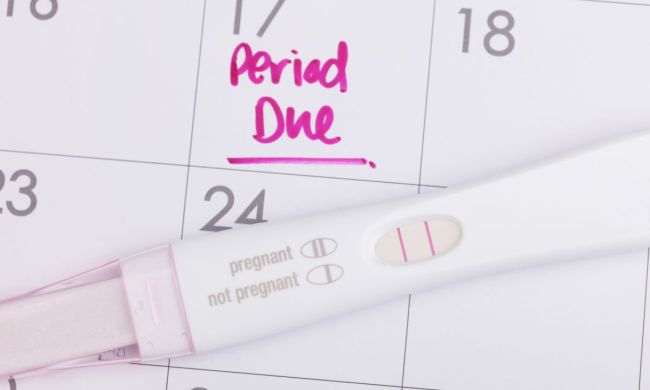There are plenty of reasons to track your menstrual cycle. The biggest reasons people start tracking are because they are trying to conceive or prevent pregnancy. A person can only get pregnant for a short time each month, known as ovulation and “the fertile window.”
Every person’s fertile window will be slightly different, though it typically lasts for about six days. It’s known as the period leading up to and including ovulation when an egg is released from the ovaries. Knowing when that window occurs can help you increase or reduce your chances of getting pregnant.
Experts generally say ovulation occurs two weeks after the first day of your last period, but it’s not an exact science. That’s where technology comes in. Several menstrual cycle tracking apps and fertility tracking apps can help. Here are the best ones to try.

Ovia Fertility
This free app helps you track your period and has a bevy of features you can use to nail down your fertile window. You can track basal body temperature, cervical position and fluid, results of ovulation predictor tests, and each day of your period. Ovia will adjust your fertile window based on your inputs to help you maximize the best time to try to conceive. You’ll also get thousands of free articles with advice on conception, fertility, and health. The fertility process can feel all-consuming, but the app also helps you stay on track with your nutrition and exercise. You can input those as well to keep yourself accountable. When you get that big fat positive, you can seamlessly switch over to Ovia Pregnancy and later Ovia Parenting as you continue on your journey. It’s available on Google Play and the App Store.
Clue Period & Cycle Tracker
Like Ovia, Clue uses data to estimate a fertile window based on the symptoms you’re experiencing. Let the app know how you’re feeling (mentally and physically). A higher sex drive and light cramping could be a sign your body is ready to ovulate. Life happens, and it can be easy to forget about your fertile window. The app allows you to set ovulation reminders so you optimize the best time of the month to get pregnant. If you’re using the app as a period tracker and don’t want to conceive just yet, you can also input reminders to take your birth control. The app will analyze all the data you input and your period lengths, observe trends, and flag irregular cycles. When you finally see those two lines on a pregnancy test, you can switch to pregnancy mode. You can find it on Google Play and the App Store.

Period Tracker
Nearly 104,000 people have rated Period Tracker 4.9 stars out of 5 in the App Store. The app is known for being spot on for tracking your period and fertile window. Each day, you can choose from 58 symptoms and 67 moods to input into the app. You can also let the app know if you were intimate and track your basal body temperature. Not TTC? Set reminders to take medications, including birth control. Unlike apps like Ovia, Period Tracker will cost you. You can get subscriptions for $9.99 per month or $39.99 per year, but users say it’s totally worth it. It’s also available on Google Play and the App Store.
Glow
Glow helps people feel empowered by data during their fertility journeys. You’ll start by entering things like sexual activity, symptoms, basal-body temperature, and moods. The app will analyze your inputs and create a personalized chart that includes predictions for your fertile window and period. You’ll also have access to a library of resources known as “Glow Scoops,” which give you tips, tricks, and other information on fertility-related topics like egg freezing and menstrual health. You’ll also be able to join a community of women who are trying to conceive in various ways, from intercourse to IUI and IVF. Their advice and experiences can help you feel more supported. Download it on Google Play and the App Store.
Your fertile window is only a couple of days per month, and it’s unique to you. Figuring out how to track your menstrual cycle can help you pinpoint it. Many apps make what can feel like a daunting task a cinch. You can track your symptoms, like moods, as well as the results of ovulation predictor tests. It’s important to note that sometimes apps and even ovulation tests can predict that you are in your fertile period even if you are not. If you have diagnosed or undiagnosed fertility issues, such as PCOS, you may need to work with a specialist to monitor your cycle more closely. Also, though the apps can help you learn more about your period, even if you aren’t trying to conceive, always remember that they aren’t a replacement for contraceptives like birth controls or IUDs.



